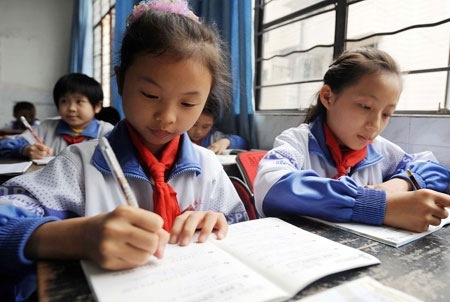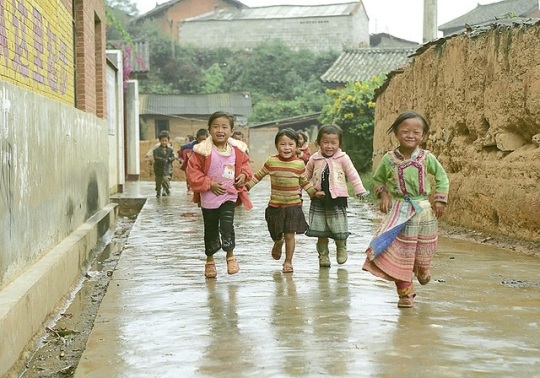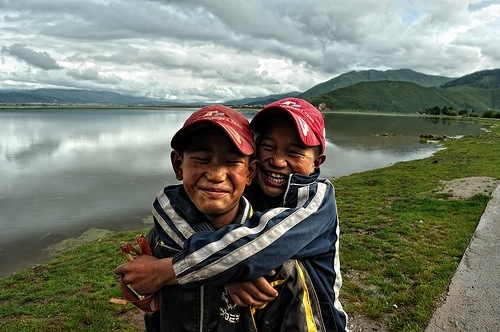China is the second largest economy in the world, a country whose urban areas are witnessing an expanding middle class, with many beginning to enjoy lifestyles of luxury and excess. There is, however another side of the story- the country is also facing an ever-widening rural-urban income gap. Amidst its glorious growth, many of China’s rural citizens are being left behind, with some unable to afford even running water.
The children living in rural parts of China are the ones who must bear the brunt of the country’s increasing inequality. As many parents, in hope of providing a better life for their families, leave poverty stricken agricultural towns and villages to find work in the city, their sons and daughters are often left behind. Those who follow their parents to city areas are treated like second-class citizens and are prohibited by government policy from entering urban schools. They are forced to attend shabby, poorly funded migrant-worker schools on the city fringe. Facing limited wages and rising inflation, many families cannot even afford to send their children to school. In rural areas, teachers are paid little and quality instruction is hard to come by. In some areas, there are no schools at all, and in many more, there are no books to read apart from tatty hand-me-down books.
This educational disadvantage translates into another obstacle in finding employment for these children in a country where many graduates are unemployed. Without the resources, rural children will become adults who lack knowledge and inspiration to seek ways to improve their lives and those of their offspring. Lacking any hope of being able to change their lives for the better, these people are trapped in a vicious poverty cycle.
The extent of hardship faced by children in rural China is difficult for us to understand in Australia where we have solid welfare nets and a world-class education system. If we realise the many privileges that we have and look to the compassion in our hearts, we will find a desire to work for this cause for our actions could amount to joys and excitement for children who yearn for access to better education as well as giving them hope for a better future.
We could share some of the privileges that we have by creating projects and raising funds to sponsor children through their school years, offering the choice of having an education while building cross-country connections and friendships that will open minds and bridge hearts.






